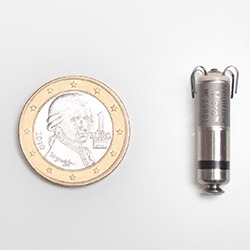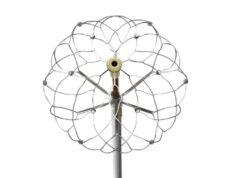
New long-term results from the Medtronic Micra Transcatheter System Global Clinical Trial have shown consistently low rates of major complication. The data—from largest and longest clinical evaluation of leadless pacing patients to date—was presented at a late-breaking trial at the 2016 European Society of Cardiology (ESC) meeting in Rome, Italy.
Ninety-six per cent patients in the trial using the Micra TPS experienced no major complications through 12 months follow-up (95% CI, 94.2-97.2%, p<0.0001). The Micra TPS reduced the risk of major complications by nearly half (48%; hazard ratio=0.52, p=0.001) compared to conventional systems and the risk was lower across all patient sub-groups, whether measured by age, sex or comorbidity (all hazard ratios<1).
The overall reduction in major complications with the Micra TPS was associated with a 47% decrease (p=0.017) in the risk of hospitalisation and 82% (p<0.001) reduction in risk of system revision, compared to conventional pacing systems. According to a company release, these reductions were due largely to the elimination of complications such as pneumothoraces, the absence of Micra dislodgements and device infections.
“The Micra TPS has consistently demonstrated strong effectiveness and safety benefits in patients with diverse comorbidities,” says Philippe Ritter, principal investigator of the Micra TPS Global Clinical Trial and cardiologist at University Hospital of Bordeaux. “All pre-specified safety and efficacy objectives from the trial were met, with consistent findings from early performance, six-month, and 12-month data.”
Micra battery projections continue to perform in-line with conventional pacemaker systems. Based on 644 patients with 12-month device use conditions available, Micra yielded a projected average longevity of more than 12 years.
In November 2015, preliminary results from the Medtronic Micra TPS Global Clinical Trial were published in the New England Journal of Medicine, showing that the Micra TPS was successfully implanted in 99.2% of patients, and that the system met its safety and effectiveness endpoints with wide margins.
The Micra TPS is comparable in size to a large vitamin, yet delivers the most advanced pacing technology to patients via a minimally invasive approach. During the implant procedure, it is attached to the heart with small tines and delivers electrical impulses that pace the heart through an electrode at the end of the device.
Unlike traditional pacemakers, the Micra TPS does not require leads or a surgical “pocket” under the skin, so potential sources of complications related to such leads and pocket are eliminated – as are any visible signs of the device.
The Micra design also incorporates a retrieval feature to enable retrieval when possible; however, the device is designed to be left in the body. For patients who need more than one device, the miniaturised Micra TPS was designed to be permanently turned off so it can remain in the body and a new device can be implanted without risk of electrical interaction.
The Micra TPS was awarded CE mark in April 2015 and US Food and Drug Administration approval in April 2016. The product is approved for both 1.5 and 3 Tesla full-body magnetic resonance imaging (MRI) scans, and can send data remotely via the Medtronic CareLink network. Remote monitoring of Micra devices is currently available in Europe and expected to be available in the US later this year.









